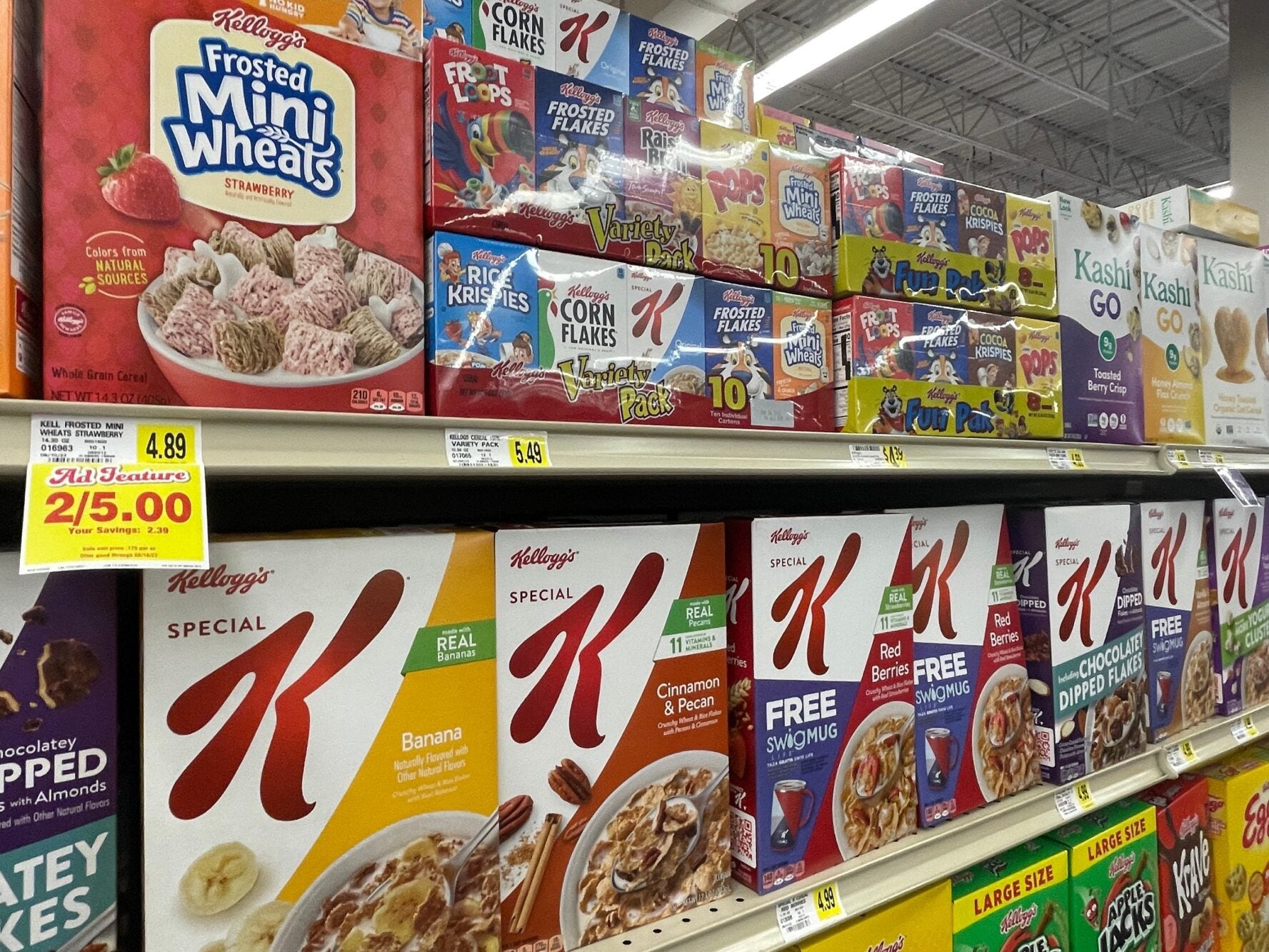
WK Kellogg has raised its EBITDA outlook as the North America cereals business makes inroads on margin progression following last year’s spin-off.
Presenting fiscal 2023 results yesterday (13 February), which were generally in positive territory aside from volumes, the Raisin Bran owner guided to adjusted EBITDA for the new year of $265-$270m (3-5% growth). That is up from the $255-$265m area outlined at the investor day last August.
Margins also improved on both the gross and EBITDA side as WK Kellogg aims to increase the latter by 500 basis points to around the “mid-teens” by the conclusion of 2026.
The adjusted EBITDA margin rose 290 points to 9.4% in the year to 30 December, while the metric increased 50% in value terms to $258m.
With issues such as a fire at one of its plants and a workers’ strike now behind the company, CEO Gary Pilnick said: “Our performance reflects the benefit of positive price/mix, our recovery from the fire and strike, and underlying business momentum.
“The year ended better than planned as we continue to improve our operational efficiency and maintain cost discipline.”
Access the most comprehensive Company Profiles
on the market, powered by GlobalData. Save hours of research. Gain competitive edge.

Company Profile – free
sample
Your download email will arrive shortly
We are confident about the
unique
quality of our Company Profiles. However, we want you to make the most
beneficial
decision for your business, so we offer a free sample that you can download by
submitting the below form
By GlobalData
WK Kellogg’s standalone net sales, separated out to provide clear direction following the split, rose 2.8% to $2.74bn, in line with longer-term value guidance.
The outlook for 2024 was, however, updated to a range of minus 1% to plus 1%, from flat previously.
Analysts at Stifel estimated in a research note an EBITDA result for the new year of $271m, reflecting 5% growth, and an adjusted EBITDA margin of 10%.
“The bulk of the EBITDA expansion [through 2026] is likely to be weighted toward 2025 and even more heavily in 2026 based on the timing of modernisation investments,” the Stifel analysts suggested.
WK Kellogg CFO David McKinstray said that since the spin-off, the company has “reshaped the timing of our brand investments”, leading to a 40 basis-point gain in US market share last year to 27.8%.
In Canada, it grew 160 points to 37.9%, although progress for the Caribbean – the other post-spin-off geographical segment area – was not outlined in yesterday’s discussion.
“Our stable top-line performance has been a catalyst for our margin improvement and has been enabled by our improving supply reliability,” McKinstray said.
“This improvement is primarily related to driving operational efficiencies within our supply chain and from positive price/mix from our revenue growth management initiatives,” he added with respect to the 410 basis-point improvement in the gross margin to 28.9%.
“Due to our revenue growth management initiatives, we expect full-year [2024] price to be positive low single-digits and volume to decline low single-digits.”
That would be an improvement from the 9.8% volume decline seen in 2023, when McKinstray said the last “major pricing action” was in March of that year.
Asked yesterday for insight into WK Kellogg’s cost-inflation expectations for the new year, the CFO explained.
“If you look in aggregate, we’re not seeing a significant amount of deflation in 2023 or in our outlook in 2024.
“If you go into specific areas of our cost structure or our basket of goods, if you will, there’s a couple areas we’re seeing the deflation. You guys can see it, namely corn, wheat, but there’s a couple others that had been what I would call resiliently high and have actually worked the other way.
“Those being sugar and rice is a couple of examples. But again, I characterise it for us as more of a stabilisation at these higher levels.”

